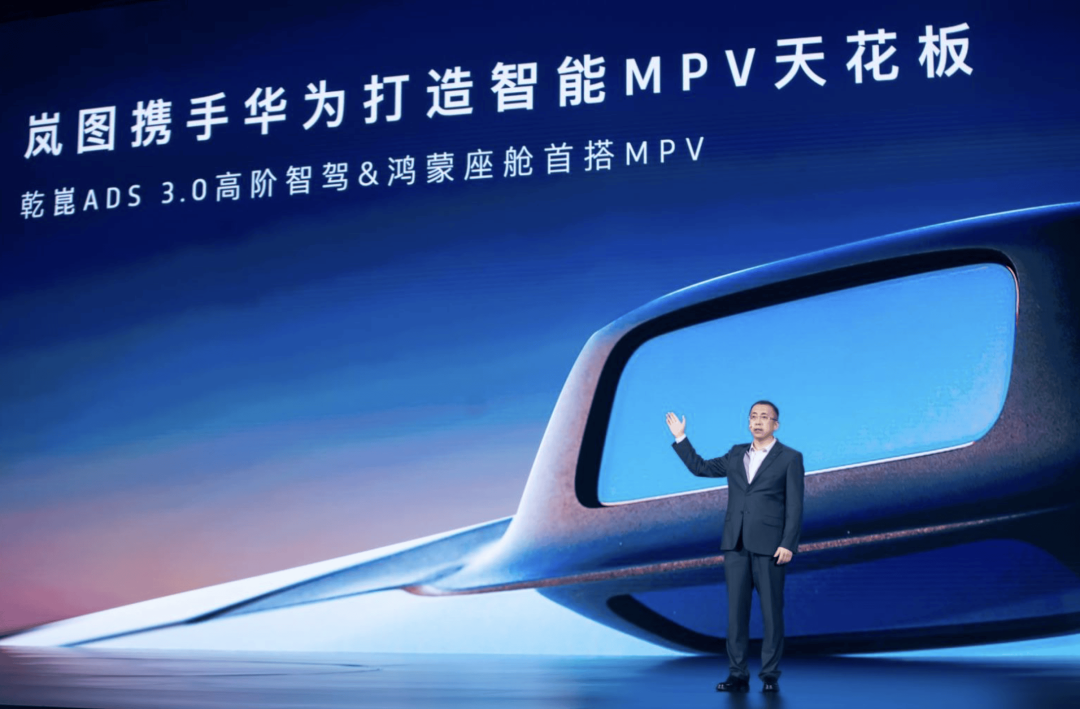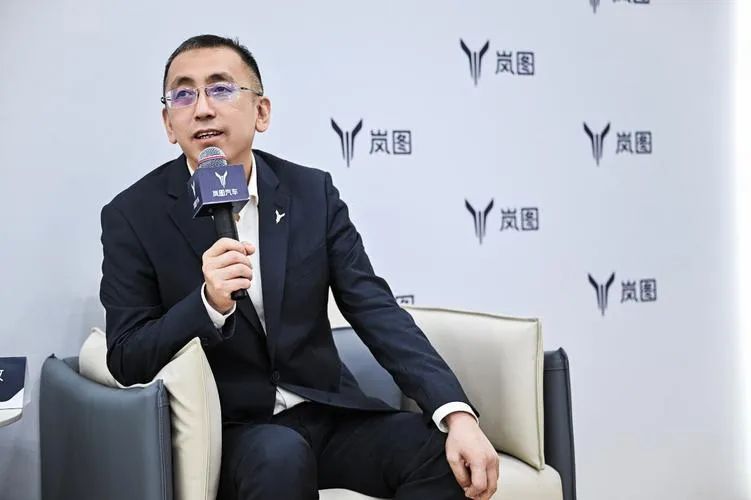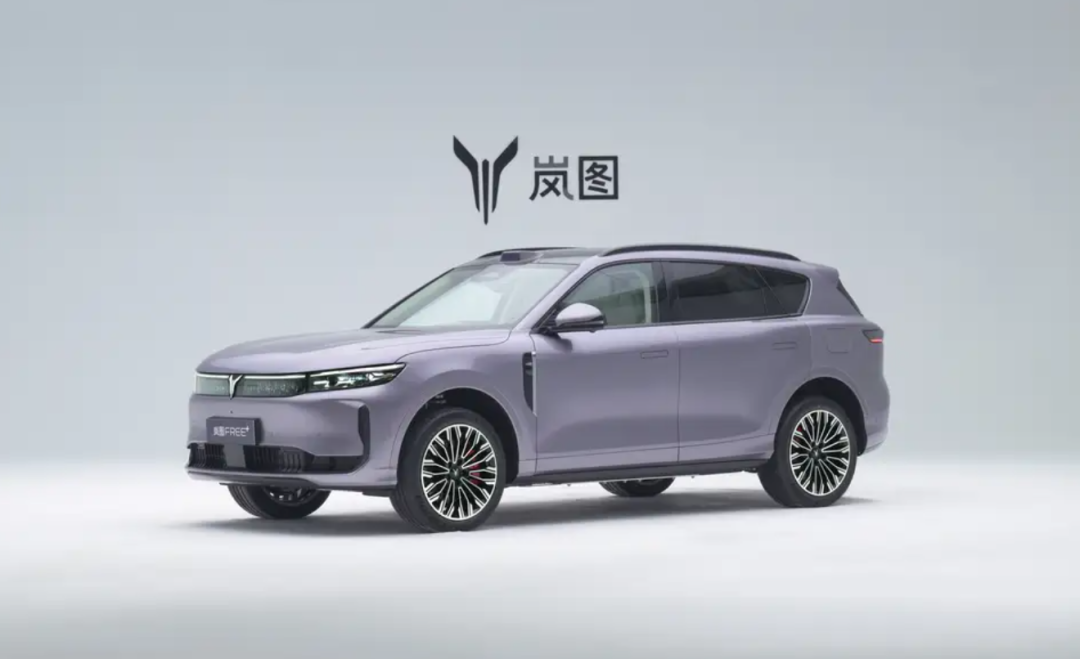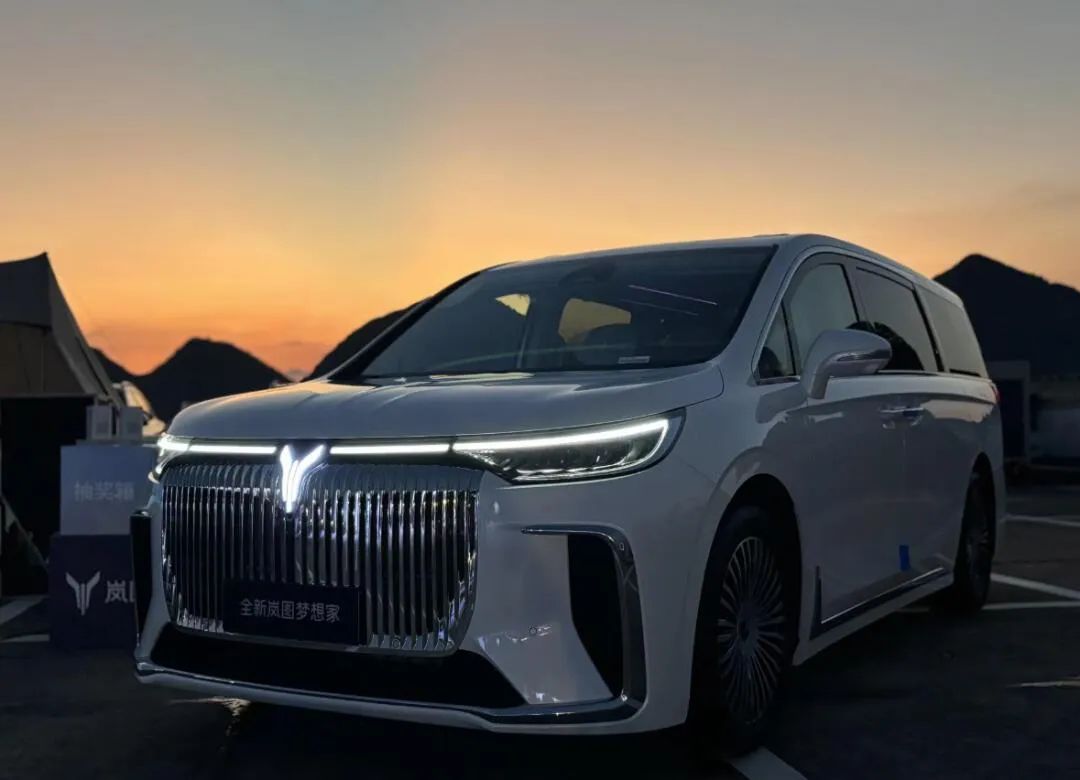Voyah Urgently Seeks Dealer Confidence as Dongfeng Emphasizes "Staying at the Table"
![]() 06/05 2025
06/05 2025
![]() 572
572

A month after unveiling its strategic new model, FREE+, Voyah hopes to regain dealer confidence.
By Cao Lin
Edited by Mao Shiyang
Original content from AutoPixel (ID: autopix)
01.
Staying at the Table
On June 1, Voyah Automobile announced its latest sales figures with jubilation—10,022 units sold in May, marking the third consecutive month exceeding 10,000 units.
Although Voyah achieved a year-on-year increase of 122% last month, it is still far from its target. This year, Voyah's annual sales target is 200,000 units, requiring a 133% increase over the previous year. In the first five months, Voyah sold a cumulative total of 46,000 units. To maintain the annual target, Voyah must sell at least 20,000 units per month in the second half of the year, doubling its current sales.
The existing product lineup is unlikely to generate more incremental sales. In March and April, Voyah sold 10,012 and 10,019 units respectively, with monthly sales nearing the brand's peak since inception.
AutoPixel exclusively learned that pre-orders for the new Voyah FREE+ will begin in mid-to-late June, with major orders and deliveries starting in mid-July. From next month to the end of the year, the effective sales cycle for FREE+ this year is only five months.
FREE+ needs to bring at least 10,000 incremental units per month to Voyah to achieve its annual sales target, which is also the goal of Voyah's senior management. Voyah CEO Lu Fang and Sales Company General Manager Shao Mingfeng have stated on multiple occasions that the goal for FREE+ is to become one of the top three in its segment, corresponding to a monthly sales volume of over 20,000 units.
 ▍Voyah CEO Lu Fang
▍Voyah CEO Lu Fang
A person close to Voyah's sales system revealed that this year's annual target was set by the parent company, Dongfeng Motor Corporation. From late last year to early this year, Dongfeng Motor Corporation's senior management emphasized the importance of achieving this target on multiple occasions.
Voyah sold 85,700 units in 2024, falling short of Dongfeng Motor Corporation's annual target of 100,000 units. In January this year, Peng Yuanpu, then Deputy General Manager of Dongfeng Motor Corporation, attended Voyah Automobile's 2025 work conference, where the sales target of 200,000 units was communicated to Voyah employees.
At that time, Peng Yuanpu described the new sales target as "building the scale to stay at the table." On behalf of Dongfeng's senior management, he reminded Voyah that "the current industry is in a knockout phase, and Voyah Automobile must further enhance its sense of urgency."
Voyah Automobile is a high-end new energy brand incubated by Dongfeng Motor Corporation. This year marks the fifth year since the launch of its first vehicle in 2021. As Dongfeng and Changan, two state-owned automakers, approach reorganization and integration, Voyah needs to prove it can survive independently in the increasingly competitive new energy vehicle market.
An annual sales volume of 200,000 units is what Dongfeng Motor Corporation's senior management considers the "scale to stay at the table."
02.
Channel Challenges
A month after unveiling the design of FREE+, Voyah held an Eco-Partner Investment Conference at its headquarters in Wuhan on May 13, 2025. This is an annual conference for Voyah to address its sales channels.
Starting in 2023, Voyah shifted from a fully direct-operated store-building model, attracting external investors to invest in Voyah dealerships, known as "eco-partners." At this year's dealer conference in May, Voyah's senior management reiterated Dongfeng's emphasis on Voyah, conveyed the positive sales trend, and mobilized dealers to cooperate more closely.
As FREE+ approaches market launch, Voyah needs to reinvigorate dealer enthusiasm and improve cooperation.
 ▍Voyah FREE+
▍Voyah FREE+
Voyah is not a dominant new energy vehicle brand. We learned that to attract dealer investors, Voyah offers a rebate rate among the highest in the industry.
Even so, some dealers are still uncooperative with the automaker's requirements. A person close to Voyah's sales system told us that many dealers are unwilling to continue investing, and even their staffing levels are inadequate.
The core issue lies in the products. Over the past four years, Voyah has launched four all-new models, covering the most mainstream segments. From 2021 to 2024, Voyah launched the FREE, Zhui Guang, Meng Xiang Jia, and Zhi Yin, targeting the mid-size SUV, mid-size sedan, MPV, and compact SUV markets in the new energy vehicle sector, respectively.
However, Meng Xiang Jia is the only model with solid sales. This vehicle has repeatedly defeated the Denza D9 in its segment, contributing more than 65% of Voyah's current monthly sales.
The result of relying on MPV sales is that while sales have increased, dealers' business development capabilities have not improved effectively.
The MPV is a model suitable for both business and family use. Before the launch of the new Meng Xiang Jia equipped with Huawei Kunlun Intelligent Driving and HarmonyOS cabin in September last year, commercial or official vehicle usage scenarios were the main sources of demand supporting Meng Xiang Jia's sales. As a state-owned enterprise, Dongfeng Motor Corporation has provided significant assistance to Meng Xiang Jia's sales. We learned that Dongfeng's subsidiaries, related companies, and many enterprises and institutions in Hubei have contributed a large number of orders to Meng Xiang Jia.
Selling official and business vehicles does not require dealers to actively develop the market. Except for Meng Xiang Jia, the other three Voyah models are completely oriented towards the consumer market. Except for the older FREE, which sold 2,000 to 3,000 units in some months, the monthly sales of the other models are all below 1,000 units.
The impact of dealer cooperation on Voyah's sales is obvious. Zhi Yin, a new model launched by Voyah in October last year, sold only 697 units in April this year, quickly falling to the fringes. Many dealers reduced their investment when they saw that Zhi Yin's sales were not performing well. For example, some dealers reduced the exhibition space of their supermarkets and only displayed the best-selling Meng Xiang Jia, resulting in Zhi Yin losing many exposure opportunities after being on the market for more than half a year.
The low and unstable sales on the consumer side of Voyah have led to another result, which is the severe loss of regional sales personnel. We learned that in Voyah's sales system, the turnover rate is generally high, from the most basic store sales personnel to the general manager of the region (director level).
Voyah is divided into 11 sales regions nationwide. In the past six months alone, at least more than 30% of personnel have changed in the position of regional general manager. The turnover rate of heads of second-tier departments below the region is even higher. Under sluggish sales, grassroots sales personnel lack motivation, while middle managers bear the pressure of assessment—personnel changes.
The sales system is filled with new employees, and grassroots sales personnel lack loyalty and familiarity with the brand, making it difficult for stores to set long-term goals.
The lack of enthusiasm among dealers is not conducive to the new FREE+ expanding the market. How to activate the dormant dealer system is a current challenge for Voyah.
Voyah regularly shares cases of stores with higher operational efficiency with dealers, such as some stores in Zhengzhou, Erdos, and Yiwu. These stores have a more refined sales approach, pay more attention to the Voyah brand, and have a higher degree of cooperation with the automaker. Voyah hopes to use these profitable store cases to stimulate dealer enthusiasm.
Unlike the MPV's business and family-friendly scenarios, the majority of demand in the compact SUV market for FREE+ comes from the consumer side. Therefore, selling this model well is a tough battle for Voyah in the private market and a test for Voyah's channels to truly establish their development capabilities.
03.
Replicating Meng Xiang Jia
While mobilizing dealers, Voyah hopes to present solid products, which is fundamental to activating dealer enthusiasm.
We learned that according to Voyah's breakdown of the 200,000-unit target at the beginning of this year, the consumer market needs to account for 150,000 units, with the remaining 50,000 units coming from other channels.
Huawei has sufficient appeal in the consumer market. Beyond business and official scenarios, Meng Xiang Jia further opened up the private market after September last year. Previously, there were no MPV products in brands such as Wenjie and AITO, which were incubated with Huawei's participation. This made the new version of Meng Xiang Jia launched that month the first MPV equipped with Huawei Kunlun Intelligent Driving and HarmonyOS cabin. Earlier this year, Voyah's internal market analysis report stated that seven out of ten Meng Xiang Jia sales come from the private market.
FREE+ replicates Meng Xiang Jia's experience as Voyah's first SUV equipped with both Huawei Kunlun Intelligent Driving and HarmonyOS cabin. Meng Xiang Jia only has Huawei's full suite in some versions, while FREE+ is more extreme, with the entire lineup equipped.
 ▍Voyah Meng Xiang Jia
▍Voyah Meng Xiang Jia
Before the FREE+ project began, Voyah's product and market teams held multiple internal summaries in 2024. The first was to summarize the successful experience of Meng Xiang Jia after its 2024 refresh, and the second was to summarize the lessons learned from the failure of Voyah Zhui Guang. Zhui Guang is a new energy sedan launched by Voyah in 2022. Since its launch, the sales volume of this model has been less than 500 units in most months, making it a typical failed product for Voyah.
Voyah's marketing team believes that the reason for Zhui Guang's failure was its overemphasis on executive feel and chassis control. In the era of new energy vehicles, users do not have a strong sense of gain in these areas, and Voyah spent too much cost on these projects, resulting in an excessively high price for Zhui Guang. However, in terms of the more explicit value of new energy intelligent vehicles, Voyah's successive new models have not conveyed the message well, such as intelligence and assisted driving. In the market, users generally have a low evaluation of Voyah's infotainment system.
FREE is the first product of the Voyah brand. According to Voyah's official statement, Voyah invested a total of 500 million yuan in the development of FREE over four years, with 1,366 optimization projects for the latest FREE+, most of which are related to intelligence.
Voyah has begun to pay more attention to explicit value. Lu Fang said that the appearance of Voyah FREE has undergone three iterations, from the initial Chinese style to the mech style and now to the urban style. This appearance orientation replicates the proven path of AITO M7 and LIXIANG L6.
The preparation is for Lu Fang to hope that FREE+ will become Voyah's second blockbuster after Meng Xiang Jia. Although the product strength has been significantly improved, some dealers are still observing the new car.
One reason is price. The pricing of the older Voyah FREE ranges from 228,900 yuan to 266,900 yuan. We learned from within Voyah that as of mid-last week, although the final selling price of FREE+ has not been determined, it is highly likely to increase significantly compared to the older FREE. The key factor affecting pricing is cost. After equipping the entire lineup with Huawei Kunlun Intelligent Driving and HarmonyOS cabin, the cost of Voyah FREE+ has increased significantly.
The second reason is competition. Even though Voyah has tried its best to respond to user needs, the segment where FREE+ is located is the most competitive in the entire new energy vehicle market. Well-known competitors include LIXIANG L6, AITO M7, AITO R7, and ZEEKR 7X, as well as the highly anticipated new car Xiaomi YU7, which is also set to be launched in the second half of the year.
In this segment, the "Huawei full suite" is difficult to constitute a significant differentiation. In April this year, the monthly sales volume of AITO R7, which is also equipped with the Huawei full suite, was 5,092 units. Even the monthly sales volume of the star model AITO M7 has slipped from a peak of 20,000 to 30,000 units to just a few thousand units. Additionally, LIXIANG L6 sold 17,000 units in April this year, 10,000 units less than its peak.
Equipping with Huawei is the main way for Voyah to enhance its competitiveness in the coming period. In addition to FREE+, Voyah will also launch a new SUV codenamed H77, positioned above FREE+. Huawei's intelligent team will be more deeply involved in this new model. Furthermore, Voyah's failed models such as Zhi Yin and Zhui Guang are also expected to successively launch versions equipped with the "Huawei full suite."
From product development to marketing and sales, high sales volumes can create a positive cycle throughout the system. Betting on a blockbuster may not be the best approach, but it may be the only one.







